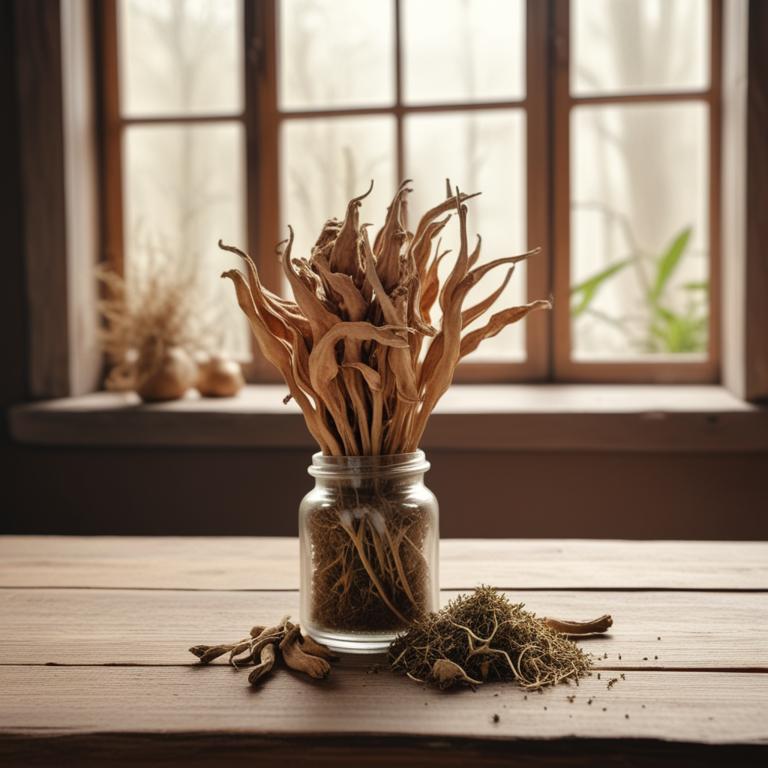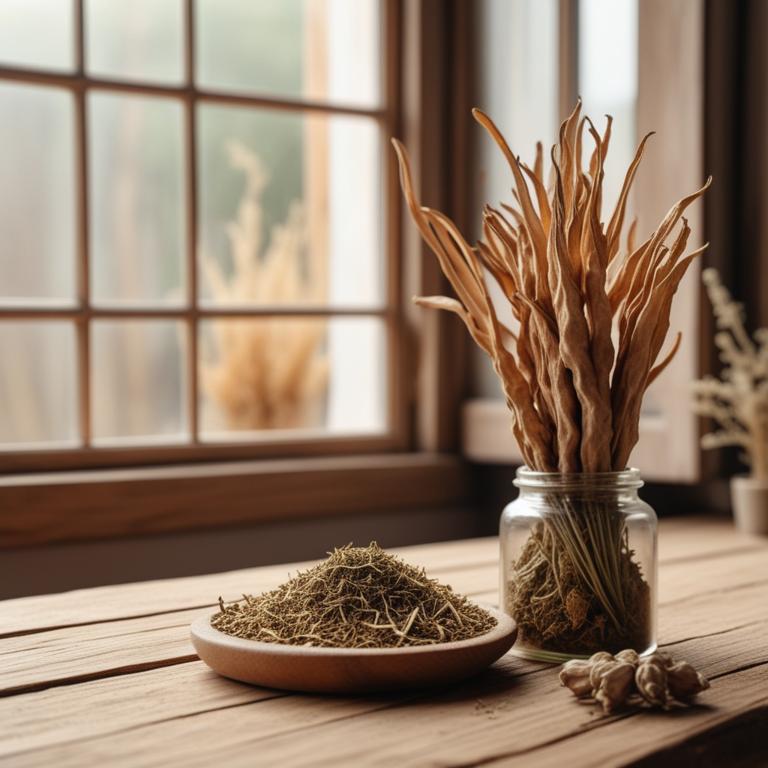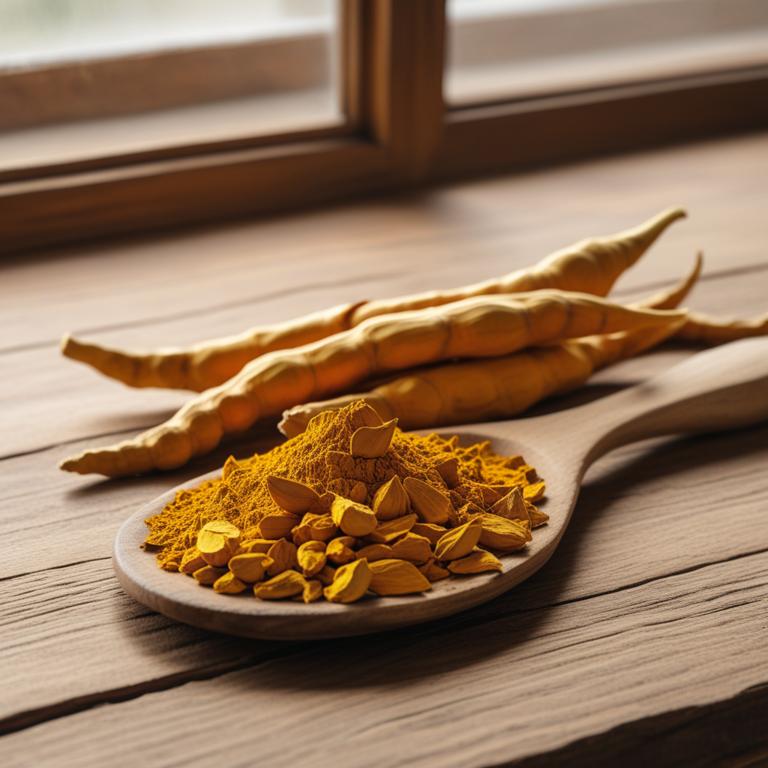Updated: Dec 1, 2024
Relieving Muscle Pain: Understanding Its Causes and Herbal Remedies

Muscle pain can be a real nuisance, making everyday activities a chore.
It's that aching feeling in your back, neck, or legs that makes you feel tired and irritable. Muscle pain is often caused by overuse, injury, or strain, which can be due to physical activity, poor posture, or even stress. When you're in pain, you may find it hard to sleep, concentrate, or even enjoy your favorite hobbies. Fortunately, herbal remedies can provide relief from muscle pain. Herbs like arnica, turmeric, and ginger have anti-inflammatory properties that can help reduce swelling and ease pain.
Willow bark, a natural source of salicylic acid, has been used for centuries to soothe aching muscles. These herbs can be consumed in various forms, such as teas, capsules, or topical creams. You can make a soothing tea by steeping dried arnica flowers or ginger roots in hot water. Some herbal teas, like willow bark tea, can be consumed 2-3 times a day to alleviate muscle pain. Topical creams or ointments made from arnica or turmeric can be applied directly to the affected area for quick relief.
Additionally, some herbal supplements, like turmeric capsules, can be taken orally to reduce inflammation and ease pain.
Table of Contents
What initiates muscle pain?
The main causes of muscle pain are often related to the way we use our bodies and the factors that affect them.
Tension is one of the main causes, which occurs when our muscles become tight and contracted due to stress, anxiety, or even bad posture. This can cause our muscles to become inflamed and painful.
Strain is another cause, which happens when we overstretch or overuse a muscle, leading to small tears and pain. Overuse is also a common cause, as repetitive movements or activities can cause our muscles to become fatigued and painful. Injury is the most obvious cause, as a direct blow or trauma to a muscle can cause immediate pain and inflammation.
In many cases, muscle pain is also caused by a combination of these factors, such as overusing a muscle that is already tight with tension.
What benefits can herbs offer in the management of muscle pain?
Using herbs for muscle pain can be a great way to find relief.
One of the main benefits is that they are often natural and don't have the same harsh side effects as some over-the-counter pain medications. Many herbs have anti-inflammatory properties, which means they can help reduce swelling and ease pain in the muscles. This can be especially helpful for people who experience chronic pain or have had surgery.
Some herbs can also help improve circulation and relax the muscles, making them feel less tense and sore. Additionally, many herbs have antioxidant properties, which can help protect the body from damage caused by free radicals. This can be beneficial for people who engage in regular exercise or have jobs that involve physical labor.
By using herbs, people can often find relief from muscle pain without relying on prescription medications or invasive treatments.
What are the primary medical herbs used to treat muscle pain?

Herbs have been used for centuries to help with muscle pain, and for good reason.
One of the most well-known is Zingiber officinale, also known as ginger. It contains a compound called gingerol, which has anti-inflammatory properties that help reduce swelling and ease pain. Ginger also has a warming effect, which can increase blood flow to the affected area and promote healing. Another herb that's often used to help with muscle pain is Glycyrrhiza glabra, also known as licorice root. Licorice root has anti-inflammatory properties that can help reduce swelling and ease pain, and it also has a soothing effect on the muscles, which can help relax them and reduce tension.
Salvia officinalis, also known as sage, is another herb that's often used to help with muscle pain. It contains antioxidants that can help reduce inflammation and promote healing, and it also has a calming effect that can help relax the muscles and reduce tension. Artemisia absinthium, also known as wormwood, is a herb that's been used for centuries to help with muscle pain. It contains a compound called thujone, which has anti-inflammatory and pain-relieving properties that can help reduce swelling and ease pain. Finally, Cinnamomum verum, also known as cinnamon, is a herb that's often used to help with muscle pain. It contains a compound called cinnamaldehyde, which has anti-inflammatory properties that can help reduce swelling and ease pain, and it also has a warming effect that can increase blood flow to the affected area and promote healing.
These herbs can be used in various forms, such as teas, capsules, or topical creams, and they can be used individually or in combination with other herbs to help with muscle pain.
What are the most commonly prescribed herbal preparations for muscle pain?
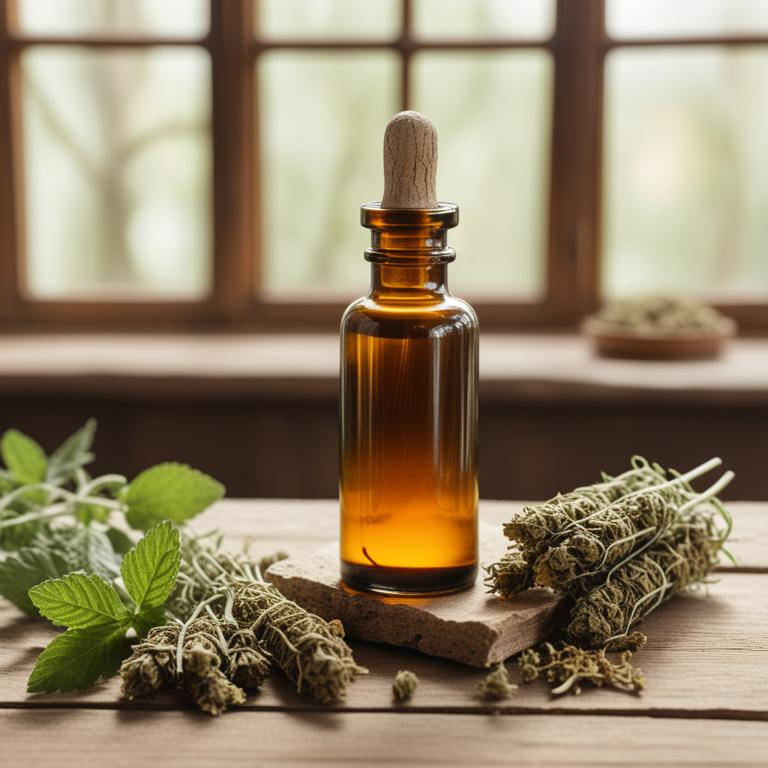
Herbal preparations can be very effective in relieving muscle pain.
One option is taking a capsule that contains dried and powdered herbs like willow bark or ginger. These herbs contain pain-relieving compounds that can be easily absorbed by the body when taken in capsule form. Another option is using a tincture, which is a liquid extract of herbs. Tinctures can be applied topically to the affected area or taken internally to reduce inflammation and pain. For example, a tincture made from arnica can be applied directly to the skin to reduce swelling and ease pain. Decoctions are also helpful in relieving muscle pain. They are made by boiling herbs in water to release their active ingredients.
Decoctions can be used to make a warm compress that can be applied to the affected area to ease pain and relax the muscles. For example, a decoction made from meadowsweet can be used as a warm compress to relieve menstrual cramps. Salves are topical creams or ointments that can be applied directly to the affected area. They are often made with herbs like arnica, calendula, or St. John's Wort, which have anti-inflammatory and pain-relieving properties. Salves can be very effective in reducing pain and inflammation in the muscles. Infusions, also known as teas, can be an effective way to relieve muscle pain. They are made by steeping herbs in hot water to release their active ingredients. For example, a tea made from chamomile can be used to relax the muscles and reduce pain.
Infusions can be taken internally to reduce inflammation and pain, or used as a warm compress to ease pain and relax the muscles.
Additional Resources:
Are there any herbs that can make muscle pain worse?
If you're experiencing muscle pain, it's best to avoid certain herbs that can make things worse.
Taxus baccata, also known as yew, contains a toxic substance called taxine that can cause muscle weakness, paralysis, and even death. Aconitum napellus, or monk's hood, has a similar toxic effect and can lead to muscle pain, numbness, and weakness.
Digitalis purpurea, also known as foxglove, has a powerful effect on the heart and can cause muscle cramps, palpitations, and other heart problems. Capsicum annuum, or cayenne pepper, can irritate the muscles and cause inflammation, making muscle pain even worse. Finally, Ephedra sinica, also known as Chinese ephedra, contains a stimulant that can cause muscle cramps, spasms, and other problems.
While these herbs may have some benefits, their potential risks can outweigh any benefits when you're experiencing muscle pain, so it's best to steer clear of them.
FAQ
Are there any specific herbs that can prevent muscle pain?
Turmeric contains a compound that can reduce muscle inflammation and pain.
Ginger has anti-inflammatory properties that can also help ease muscle discomfort. Both herbs can be consumed as teas or added to food for their benefits.
They may be used to soothe sore muscles after exercise or physical activity.
Is it safe to use herbal remedies for muscle pain during pregnancy?
It's generally a good idea to use caution when trying herbal remedies for muscle pain during pregnancy.
Some herbs, like ginger and peppermint, are commonly used and considered safe. However, others like pennyroyal and blue cohosh can be problematic.
Always check the ingredients and talk to someone you trust before using any new remedy.
Are there any herbs that can reduce the frequency of muscle pain?
Turmeric and ginger are two herbs that have been used to help reduce muscle pain.
Turmeric contains a compound called curcumin, which has anti-inflammatory properties that can help soothe sore muscles.
Ginger, on the other hand, has natural pain-relieving properties that can help ease muscle tension.
Can i combine different herbal remedies for muscle pain?
You can combine different herbal remedies for muscle pain, but use them in moderation.
For example, you might mix peppermint oil with arnica or ginger. Start with small amounts and see how your body reacts.
Be aware that some herbs can interact with each other or with other substances, so pay attention to how they affect you.
Related Articles
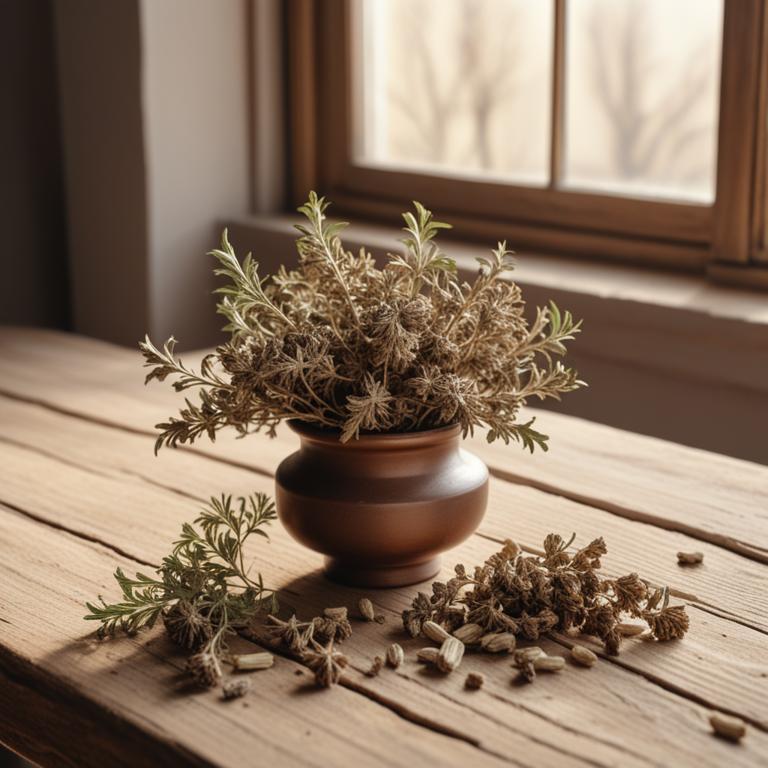
Difficulty Chewing: Understanding the Causes and Medicinal Herbs

Bone Health: A Comprehensive Guide to Causes and Herbal Preparations
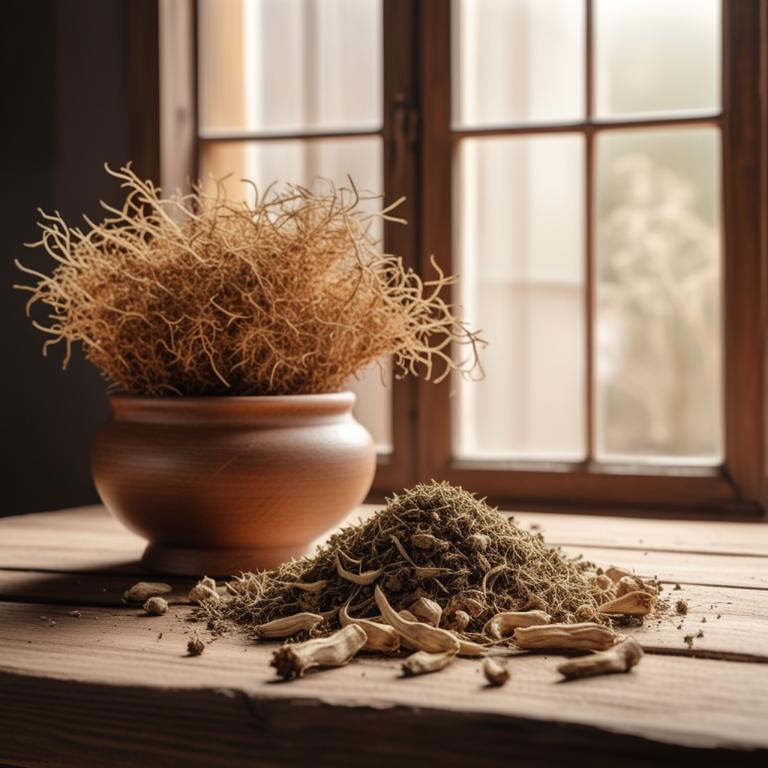
Frozen Shoulder: Causes, Symptoms, and Natural Remedies with Medicinal Herbs
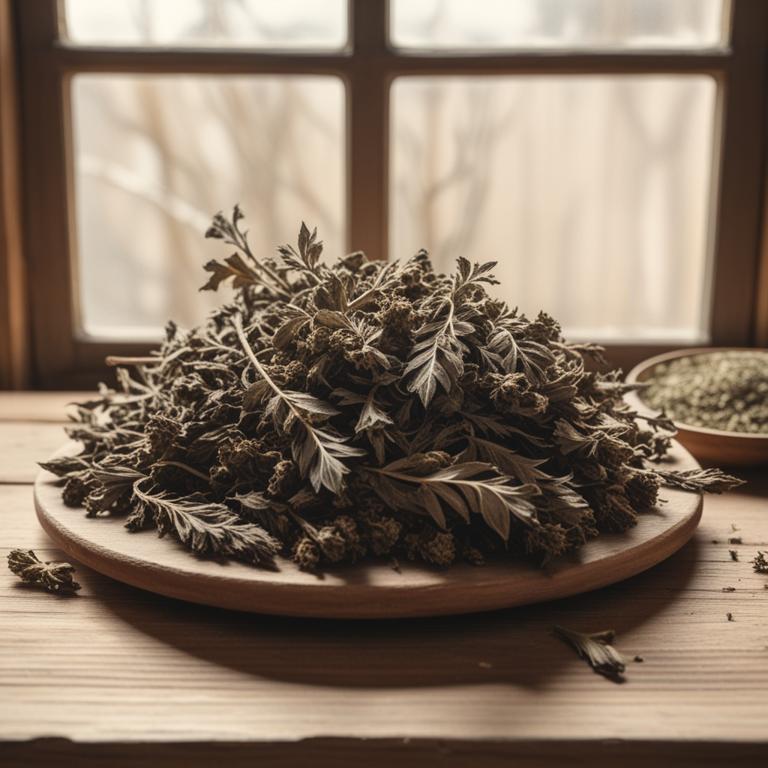
Back Pain Causes and Herbal Treatments for a Pain-Free Life
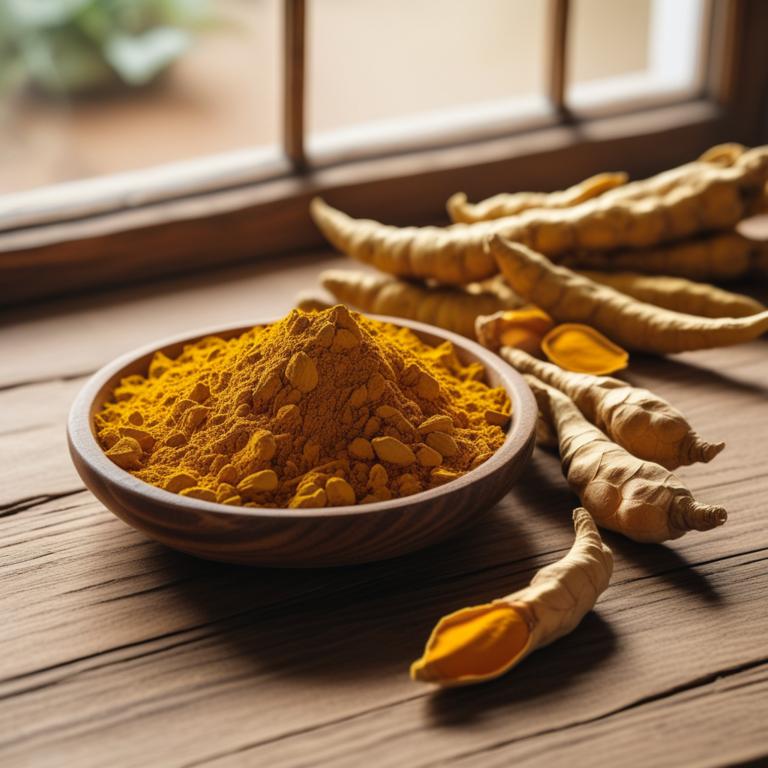
Causes, Symptoms, and Herbal Preparations for Plantar Fasciitis




